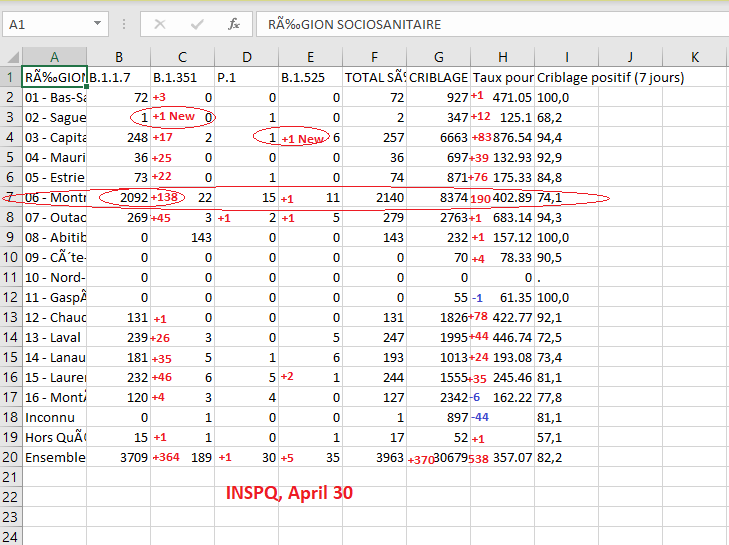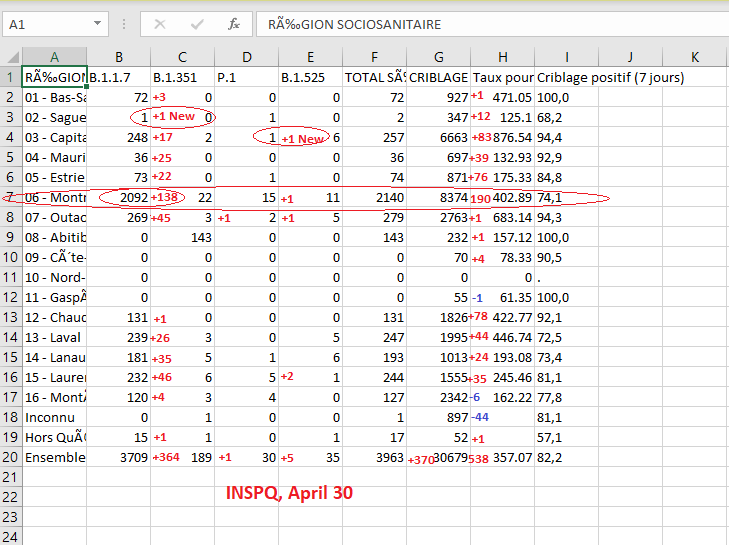
1) As Quebec is now in the grip of an Omicron-driven wave — with #COVID19 hospitalizations up by 140 to 2,436 — it’s worth noting how the #pandemic is worsening elsewhere, too. In this thread, I will examine the impact in other parts of the world, and the implications for Quebec.
2) First, #COVID19 infections are now rising in 132 countries around the world, up by two since yesterday alone, according to a reliable tally by Reuters. As you can see from the chart below, it’s proliferating again in Italy and India, among other nations. 

3) Lest skeptics dismiss this latest wave as a “casedemic,” I would like to point out that #COVID deaths are tragically once again climbing all over the world. The chart below by the Washington Post shows such deaths now surging on every continent. 

4) As several astute observers on this thread have already noted, focusing only on #COVID cases, hospitalizations and deaths doesn’t tell the whole story. What about the phenomenon of long COVID? The Quebec government is not compiling or reporting long COVID data.
5) But in Finland, the Minister of Family Affairs warned on Friday that long COVID could become that country’s largest chronic disease. Krista Kiuru added that “many adults will suffer...long-term COVID-19, but at worst also children.” 

6) This latest wave is harming children as never before. An average of 824 American children up the age of 17 were admitted to hospital for #COVID every day during the week up to Jan. 7. The previous seven-day average was 563, according to the chart below. 

7) In Quebec, hospitalizations in this age group have jumped 10-fold since the Omicron wave hit last month. Radio-Canada reported Saturday that fortunately such hospital stays are relatively short and hospitals have so far been managing well. 

8) But this spike in pediatric #COVID hospitalizations has implications for Quebec’s plan to return students to in-person learning on Jan. 17, and raises questions as to whether the government is doing enough to protect our children and to prevent future school outbreaks.
9) Omicron arose in South Africa, while Delta emerged in India. This suggests that until the entire world is vaccinated, new variants will continue posing a threat in the #pandemic. Canada must now contribute a lot more to the global vaccination effort. montrealgazette.com/news/local-new…
10) The vaccination implications in Quebec are clear, too. In Greece, anyone over the age of 60 not yet vaccinated now risks a monthly fine of 100 Euros. Austria is considering fines as high as 7,000 Euros for the unvaxxed. What will Quebec do? End of thread. Go get your shot.
• • •
Missing some Tweet in this thread? You can try to
force a refresh









